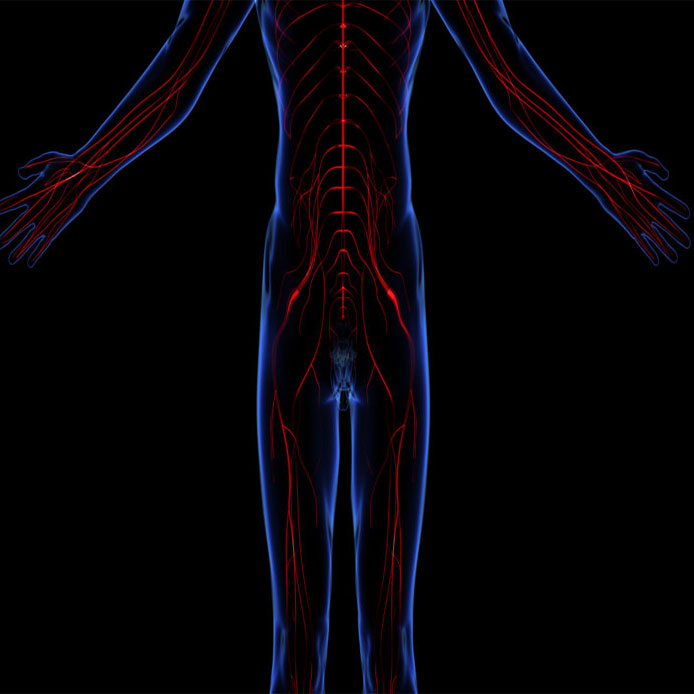Can you really tell if someone is lying to you or not? Take this deception quiz to find out how much you know about the signs and reasons for lying.
1. Everyone shows the same tell-tale signs they are lying.

We have not found the modern equivalent of Pinocchio’s nose; nothing in the face, body, voice, speech or physiology is unique to lying and never present when someone is worried, thoughtful, cautious, perplexed or nervous. Instead our study of facial expressions, gestures, voice and speech uncover what Dr. Ekman calls clues to deceit and hot spots. These are signs that something is amiss. To determine whether someone is lying you'll need to investigate further.
2. It's possible to lie without saying anything untrue.

There are two primary ways to lie: to conceal and to falsify. In concealing the liar withholds some information without actually saying anything untrue. In falsifying, the liar presents false information as if it were true. Often it is necessary to combine concealing and falsifying to pull off the deceit, but sometimes a liar can get away just with concealment. (Note: not everyone considers concealment to be lying, some believe only the bolder act of falsification is).
3. Whenever someone is lying there is always some clue that they are lying, however slight.

Some lies are performed flawlessly, with very good liars sometimes there are no clues at all.
4. The polygraph exam is the most reliable means of detecting deceit.

The polygraph lie detector works on the same principles as detecting behavioral betrayals of deceit, and it is vulnerable to the same problems. The polygraph exam does not actually detect lies, just signs of emotion.
5. Most often lies fail because some sign of an emotion being concealed leaks.

The stronger the emotions involved in the lie and the greater number of different emotions, the more likely it is that the lie will be betrayed by some form of behavioral leakage.
6. In many instances of deceit, the target of deceit colludes with the liar to avoid the consequences of uncovering the lie.

In many deceits the victim overlooks the liar's mistakes, giving ambiguous behavior the best reading, collusively helping to maintain the lie, to avoid the terrible consequences of uncovering the lie such as finding out your spouse is cheating on you or your child is doing drugs.
7. A lie is only a lie if it is deliberate.

According to Dr. Ekman's definition, a lie is only a lie if someone chooses to mislead another and no prior notification was to given that the person was going to be deceived or given misinformation.
8. When tested in research, Dr. Ekman found a high correlation between people's overall confidence level and their accuracy in detecting deception.

Those who were most accurate were more confident in their ability than others, but overall confidence had only a weak relationship to accuracy.
9. One way to tell if someone is lying is if there are little discrepancies between how they tell the same story overtime.

Actually, some great liars will intentionally make little mistakes and changes in their story so that it doesn’t appear too smooth and rehearsed. The average don man will have his story down letter-perfect whereas an honest man usually makes little mistakes, particularly in relating a long complex story.
10. The most important behavioral source in detecting deception is hand movement and gestures.

It’s actually facial expression- Dr. Ekman found that facial expression alone enables better than 70 percent accuracy in detecting deception. Many of these expressions are micro expressions.
11. Someone asks you for directions to the highway. You’re fairly confident that they should turn right at the end of the road but you don’t know for sure. Still, you tell them to turn right at the end of the road. Later you find out that the correct direction was to the left. In this scenario you would be lying.

While the directions you gave may have been incorrect, under Dr. Ekman’s definition of lying this would not be considered a lie as there is no intention to mislead. Still, to be completely honest, you would want to disclose that you are unsure.
12. When the stakes are high (such as the promise of gaining or losing something important) people are more likely to show deception clues.

The stakes being high is one of the most important factors which makes it more difficult to lie and increases detection apprehension, which in turn often leads to showing emotional leakage that gives away the lie.
13. A deception clue answers both whether the person is lying as well as what is being concealed.

A deception clue only answers whether the person is lying but does not reveal what is being concealed. You have to dig deeper to reveal this.
14. When emotions are aroused when telling a lie, physiological changes occur automatically without choice or deliberation.

When emotions are aroused, changes occur automatically without choice or deliberation. Not only is there little choice about when an emotion is felt, but people often don't feel they have much choice about whether or not the expressive signs of the emotion are manifest to others. Therefore, emotional leakage from the deceiver trying to conceal an emotion is one of the major clues to look for.
15. It is difficult to distinguish the innocent's fear of being disbelieved from the guilty person's detection apprehension.

In both instances the signs of fear would look the same, so you have to investigate further.
16. Sometimes the fear of being caught is useful to the liar.

It can help them from making careless errors, however too much detection apprehension can blow their cover.
17. It is not necessary to feel guilty about the content of a lie to feel guilty about lying.

Sometimes people feel guilty about what they are lying about and sometimes people feel guilty just for the act of lying. When the decision to lie is first made, people often don't accurately anticipate how much they may later suffer from deception guilt. Deception guilt can vary in strength. It may be very mild, or so strong that the lie will fail because the deception guilt produces leakage or deception clues. The wish to relieve guilt may even motivation a confession.
18. The most common reason people lie is to avoid punishment for breaking a rule.

The most common reason why people lie is to avoid punishment. Other reason's include: to obtain a reward, to protect someone else from being punished, to win the admiration of others, to get out of an awkward social situation, or to avoid embarrassment. Read more about the 9 most common reasons why people lie.
19. Some people enjoy the feeling of lying.

While lying makes some people feel guilty or bad, another common emotional response to lying is duping delight- enjoyment in misleading someone. The lie may be viewed as an accomplishment, which feels good. The liar may feel excitement, either when anticipating the challenge or during the very moment of lying, when success is not yet certain. Afterward there may be the pleasure that comes with relief, pride in the achievement, or feelings of smug contempt toward the target.
20. Without training, most people aren’t better than chance at determining whether someone is lying.

Based on testing thousands of people, with only four exceptions-those in the criminal justice system (police, lawyers, judges) in intelligence and psychotherapy practitioners, most people do little better than chance. Start training to spot micro expressions and detect deception today.



Share your Results:

